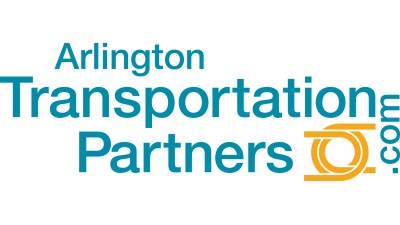How Arlington, Virginia's Residential Communities Are Changing The Future Of Transportation In The State

Arlington County has long prioritized providing multiple transportation options to residents and commuters. Now, with the passage of the Infrastructure Investment and Jobs Act in 2021, Arlingtonians can expect to see even more sustainable improvements in regional transportation infrastructure and modes, say local transit experts.
The act dedicated $1.2T for transportation, public works and sustainability improvements across the country. Of that total, a historic $89.9B was dedicated to modernizing public transportation. Virginia alone will receive an additional $1.2B from the IIJA to make necessary improvements in its public transit infrastructure.
Carlos Pazmino, business development manager for multifamily developments for Arlington Transportation Partners, said that while historic funding for a new station and service for the Virginia Railway Express has been already allocated, new IIJA funding will be incoming in the next decade. It will also provide the Washington Metropolitan Area Transit Authority with funding through 2030. This, he said, will allow for a critical retrofitting of the region’s Metro system and better integration with Amtrak and VRE.
“This kind of investment will have a profound impact on the region, and Arlington’s multifamily property owners are preparing to revamp the transportation benefits they offer their workers and residents,” Pazmino said.
Top luxury properties are bullish on transportation, he said. Many have worked with ATP to offer SmarTrip cards and Capital Bikeshare memberships as move-in incentives for new residents.
Through ATP's Champions program, multifamily residential properties made great efforts in 2021 to adapt to the new trends, Pazmino said.
After witnessing increased biking demand in its neighborhood, 2001 Clarendon Boulevard — a Gold-level Champion — expanded its capacity for public and residential bike parking. The building also provided bike maintenance tools for residents, allowing its community to maintain their bikes while storing them safely.
Pazmino said efforts like that are noteworthy because the IIJA dedicates $1.3B in bike lanes as well as $1B to redesign urban corridors.
The two largest affordable housing developers in Arlington County — the Arlington Partnership for Affordable Housing and the Arlington Housing Corp. — have also made considerable strides in promoting transit, Pazmino said. Many new APAH properties, such as Arlington Mill and Columbia Hills — Silver-level Champions — provide residents with the option to receive $5 annual Capital Bikeshare memberships.
The program helps make regional bike-share services more affordable to low- or moderate-income Arlingtonians. Many new APAH developments, such as Queens Court, have also given residents the option to receive either a SmarTrip Card or a complimentary Capital Bikeshare membership.
In response to the Great Resignation, Pazmino noted, some property management companies have updated the benefits packages they offer their workforces. This not only helps them retain already trained and talented staffers, but it also makes them more attractive in a competitive hiring market. In fact, Pazmino said, offering a 132(F) Commuter Benefit has become a standard best practice for many property management companies seeking to keep employees satisfied.
Pazmino said that being proactive on transit is a smart move for property owners and management companies.
“This is a great time for properties to set up transit benefits for their employees because commuter benefits help retain talented staff,” he said. “They also keep residents happy, which potentially means extended leases. We expect these benefits to remain popular and widely utilized for the foreseeable future.”
Along with the tangible benefits of boosting hiring or helping retain staff and tenants, the implementation of a more comprehensive commuter benefits package can make a property eligible for recognition in ATP’s Champions program. Champions provides support for property owners to help them encourage more people to walk, bike, use public transit or adopt other options than driving to work alone.
“Multifamily property owners who are ready to step up and make their property a sustainable transit leader in Arlington County can speak with an ATP transportation specialist to help them plan and implement a comprehensive new benefits package,” Pazmino said.
This article was produced in collaboration between Studio B and the Destination Sales and Marketing Group. Bisnow news staff was not involved in the production of this content.
Studio B is Bisnow’s in-house content and design studio. To learn more about how Studio B can help your team, reach out to studio@bisnow.com.

